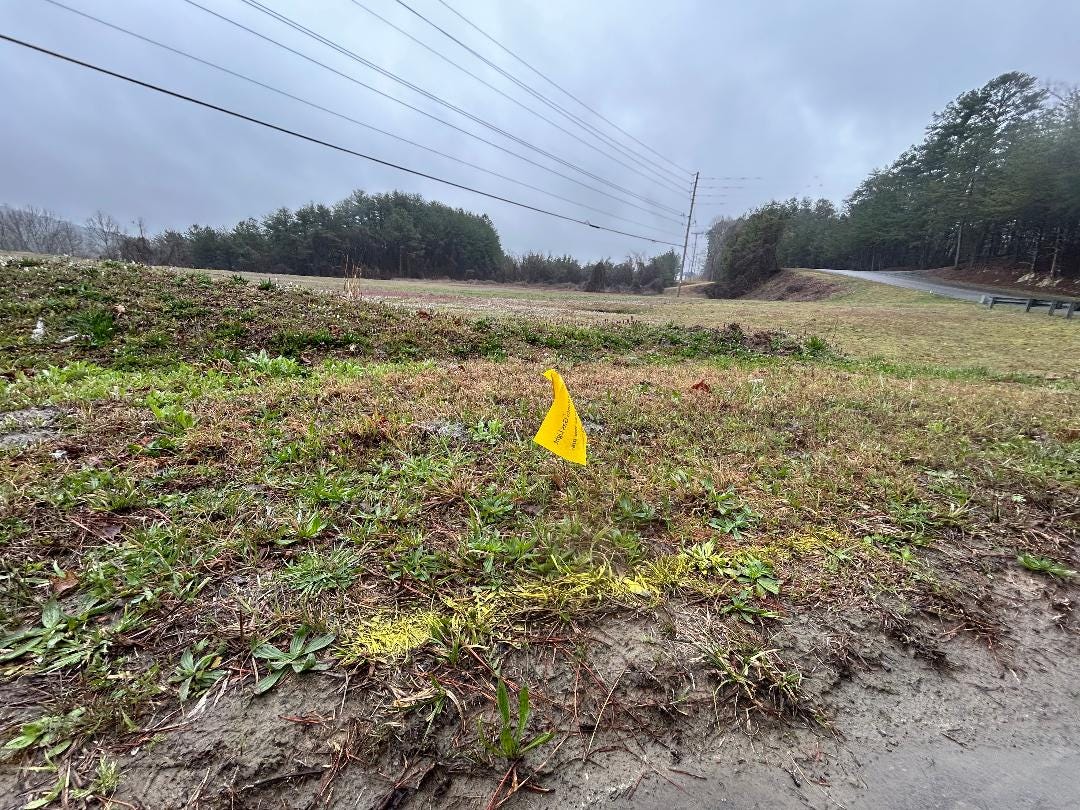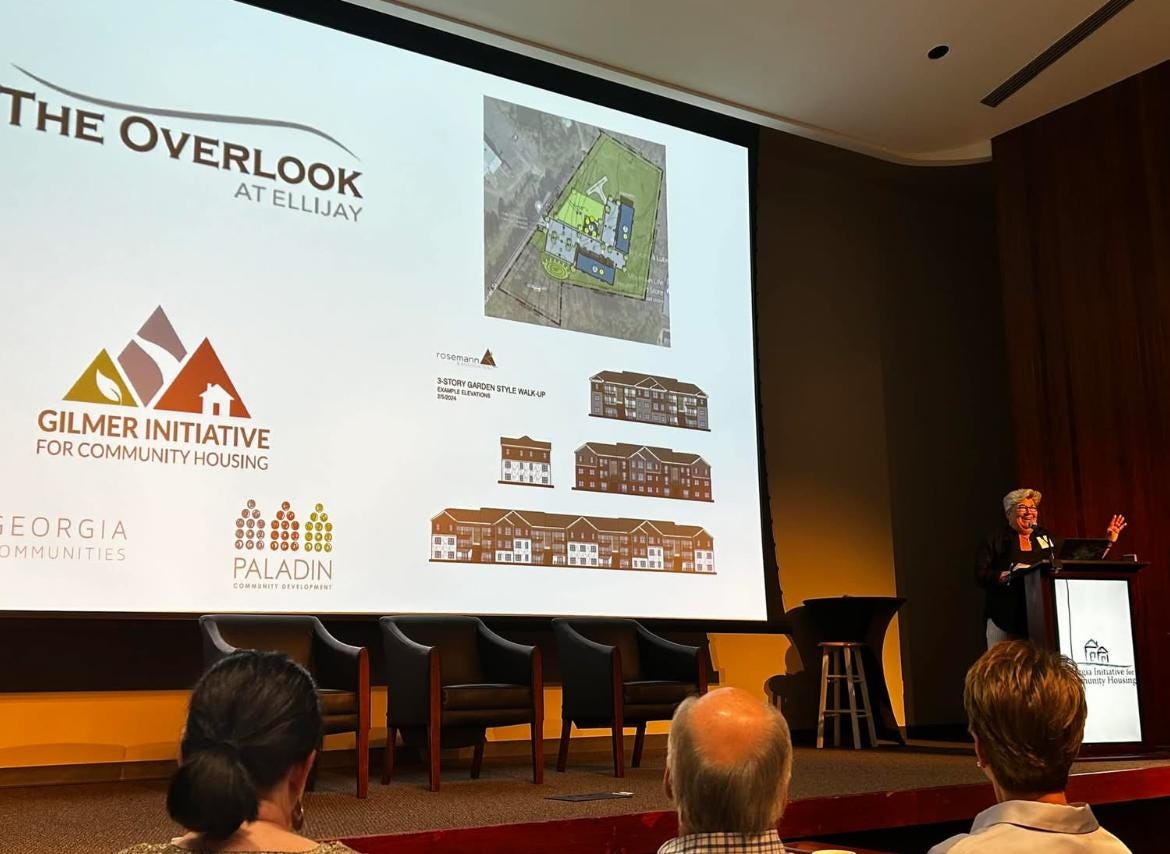Development allies make a power play
Process appears intended to mock citizen input and sidestep government transparency
This week, the March 26th edition of the Ellijay Times-Courier carried a legal ad that a public hearing and commission vote would take place in just 16 days on a plan to significantly raise the number of apartments that could be built per acre in Gilmer County.
Setback thresholds for apartment buildings and other high density housing structures would also be slashed under the proposed changes.
In the eyes of Gilmer government, what you might say at the public hearing, seemingly won’t matter, because Gilmer’s planning and zoning department has already accepted, and is moving forward on a low-income apartment proposal under the presumptive new criteria. The rezoning application for the parcel between Highway 515 and Mountain View Drive also goes to a separate public hearing in April.

In the March 12th edition of the Times-Courier, county planning director Jim Smith described the proposal as around 50 apartments planned for the 6.47 acre site. Smith had to know at the time he spoke, under existing code the site was eligible for only around 25 units.
Is it a proper place for administrative officials to accept an application and move forward based only pn a presumption of a pending change in zoning definitions?
The public hearing on raising the cap for apartments from four to ten units per acre is set for April 11th. If seen in light of the processing of the separate apartment site rezoning proposal, the hearing appears only to be window dressing. It’s theater intended meet the technicalities of law, while Gilmer government is already behaving as if it’s a done deal.
Both the Land Use Code zoning changes, and action on the rezoning application are expected to be finalized at a May county commission meeting.
There are several factors to suggest the outcome is pre-determined.
The developer appears to have had weeks, if not months, prior notice that more lienient zoning definitions were coming. Its plans were created and submitted accordingly.
Yet Gilmer residents are given but 16 days notice to research and respond.
The would-be apartment developer is Paladin/Georgia Communities Inc. It already has one low-income government-subsidized apartment project under construction in Ellijay. It’s the same developer that tried to muscle it’s way into building an inapproprate high-density project at 85 Yukon last year before Gilmer citizens packed a public hearing in opposition.

Paladin/Georgia Communities has long had endorsement by the the Gilmer Initiative for Community Housing, a group that’s obsessively plotted to bring Low Income Housing Tax Credit (LIHTC) funded higer density apartments to Gilmer. In fact, GICH has previously declared Paladin/Georgia Communities its pre-screened endorsed development “partner.”
Two of our three county commissioners, Karleen Ferguson and John Marshall, have long histories as GICH insiders. Both were on GICH when Paladin/Georgia Communities Inc. was declared a “partner.”
So too, Gilmer’s planning staff has had participation in GICH. Local government staff participation is a requirement to be part of the state program.
These facts suggest agenda is in play when it comes to moving forward on zoning definition changes or the specific apartment proposal. The process, through GICH, was co-opted long ago.
For at least two years, GICH has worked with its developer to bring low income apartment development to Gilmer. To the best of my knowlege, GICH has never held an open meeting. As citizens, we’ve been deprived of access not only to local GICH meetings, but also the content of GICH’s presentation on behalf of Gilmer to at least one statewide housing conference.
Now Gilmer County residents face a blatant play, and those pushing the zoning definition changes and apartment project locally should be ashamed for this effort to make a mockery of government transparency laws and mandated constitutional process.
The issue at hand is bigger than zoning definition changes or a single apartment project.
What’s at stake here is public trust in local government. A trust at least some in local government seem eager to betray.






On a related note, I do not understand why the Gilmer county commission does not post proposed regulations and board meeting minutes online. It limits the ability of the community to see what’s really happening inside of local government, just like Doug is describing here.
This leads into another topic of research, the falsehoods of low income housing. Just a ploy to get apartments into your community and drown the rural culture of the community.